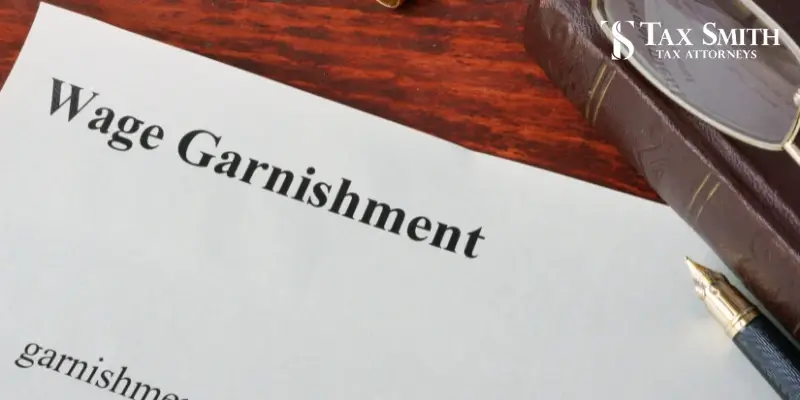1548 The Greens Way – Ste. 4 Jacksonville Beach FL 32250
Wage Garnishment Explained: Maximum Amount Creditors Can Take from Your Pay
Wage garnishment occurs when creditors receive a portion of your wages taken directly from your paycheck. This is done to pay back a debt, such as a support order, consumer credit, unpaid taxes, or a judgment. Many individuals dealing with wage garnishment wonder, how much can be garnished from wages? There are certain limitations to how creditors garnish wages and how much they can garnish. However, these limitations don’t apply to every creditor.
Federal Consumer Protections
The Consumer Credit Protection Act (CCPA) provides certain protections for individuals facing wage garnishment. Anyone with personal earnings receives these protections. The protections limit how much creditors can take from an individual’s earnings and prevent employers from firing an employee on the basis of one wage garnishment order.
The protections of the CCPA also prevent most creditors from garnishing your wages unless they have a court order. If your wages are garnished by certain creditors without this approval, it is illegal garnishment. However, certain agencies can garnish your wages without this order.
The Importance of Disposable Earnings
Under the CCPA, general creditors can only garnish a certain amount of an individual’s disposable earnings. Your disposable earnings are your wages after required deductions are made, which include:
- Federal, state, and local taxes.
- The employee’s half of the Federal Insurance Contributions Act, including Social Security and Medicare payments.
- The state’s reemployment tax.
- Some employee retirement accounts.
Disposable earnings include voluntary deductions. If you chose to contribute to charity, insurance, union dues, and other payments, those are not considered required deductions. They are still considered part of your gross income and your disposable earnings.
Federal Limitations on Wage Garnishment
The CCPA protections mean that most creditors cannot garnish more than a maximum amount of your paycheck, even if you have multiple garnishment orders. The total limit on how much creditors can garnish your wages is the lesser of the following:
- 25% of your disposable earnings.
- The amount that your disposable earnings exceed 30 times the current federal minimum wage.
This limitation applies to the pay period or workweek. If you are paid weekly and your income is equal to or less than 30 times the minimum wage, your wages can’t be garnished. Different pay periods impact parts of these calculations.
Exemptions to Garnishment Limitations
There are certain parties or types of payments that are not restricted by these wage garnishment limitations in Florida. This includes garnishments for:
- Certain bankruptcy court orders.
- State or federal tax debts.
- Non-tax federal debts.
- Child support or spousal support orders.
State and federal tax agencies and non-tax federal agencies do not have the same limits for garnishment. These agencies also do not need the court’s approval to garnish your wages. Familial support orders have unique limitation requirements. These limitations allow the garnishment of:
- Up to 60% of your wages.
- Up to 50% of your wages if you provide support for another spouse or child.
An additional 5% of your wages can be garnished if your family support payments have been unpaid for more than 12 weeks. If your garnishment stems from unpaid taxes, exploring options to resolve tax debt may provide a path to stop or reduce garnishment.
State Limitations on Wage Garnishment in Florida
Most wage garnishment limitations in Florida are the same as those imposed by the federal government. Because there are no stricter limitations, the federal laws apply. However, Florida does have unique protections for individuals who qualify as the head of household. This protection extends to individuals who are the head of the family, meaning that they provide more than half of the financial support for a child or another dependent.
If you qualify for and apply for the head of household exemption, then disposable earnings that are equal to or less than $750 a week cannot be garnished. Any of your disposable earnings that are greater than $750 a week can be garnished, but only if you agree to the garnishment in writing.
You must apply for this exemption to receive it. You must also apply within a certain time limit to receive it. If you waive this right or do not qualify, you still have federal CCPA protections. Understanding wage garnishment laws in Florida can help you navigate the process and protect your income.

FAQs About Florida Wage Garnishment Law
What Is the Most They Can Garnish From Your Paycheck?
Under federal law, the most that typical creditors can garnish from your paycheck is the lower of the following two amounts:
- 25% of your disposable income.
- However much your disposable income exceeds 30 times the federal minimum wage.
These limitations hold true even when multiple creditors are garnishing your wages. However, the limitations don’t apply to certain creditors, including state and federal tax agencies and non-tax federal agencies. They also don’t apply to child or spousal support orders.
However, these limits don’t apply to tax agencies, which can garnish wages without court approval. For more on how garnishment works in Florida, see our wage garnishment overview.
What Is the Maximum Amount of Garnishment?
When you make over a certain amount, the most that can be garnished from your wages is 25% of your disposable earnings, with some exceptions. For support orders, garnishment can range from 50% to 60% of your income. For unpaid state or federal taxes, limitations are different. There are unique protections in Florida for individuals who are the head of their household, which could prevent garnishment entirely unless the individual agrees to it.
How Do You Stop Wage Garnishment in Florida?
The simplest way to stop wage garnishment in Florida is to pay your unpaid debt in full. Once the debt is paid, the garnishment should end. If you provide more than half the support for a dependent, you could prevent garnishment if you file for the head of household exemption. You can also stop garnishment if the creditor has done it illegally.
Can You Negotiate Wage Garnishment?
If you are not financially able to pay back the debt, there may be options to negotiate the debt and stop wage garnishment or lower the amount being garnished. It is very important to talk with an experienced attorney as you navigate this process. If a tax agency is garnishing your wages, a tax attorney can negotiate on your behalf with the agency and review what options you have for resolving your debt.
Negotiating Wage Garnishment With Tax Smith Tax Attorneys
If a state or federal tax agency is garnishing your wages, you are not out of options. If you are not financially able to pay your tax debt, a skilled attorney can help. At Tax Smith Tax Attorneys, we can explore possible solutions such as an offer in compromise, a payment plan, or negotiating a lower garnishment amount. Our firm has decades of legal experience. Contact us today.
Locations We Serve
- Alabama
- Arizona
- California
- Colorado
- Connecticut
- Delaware
- District of Columbia
- Florida – HQ
- Georgia
- Idaho
- Illinois
- Indiana
REQUEST A CONSULTATION
Please fill out the Contact Request Form and a Tax Attorney/Paralegal will call you
to discuss legal representation or to schedule your free initial consultation





